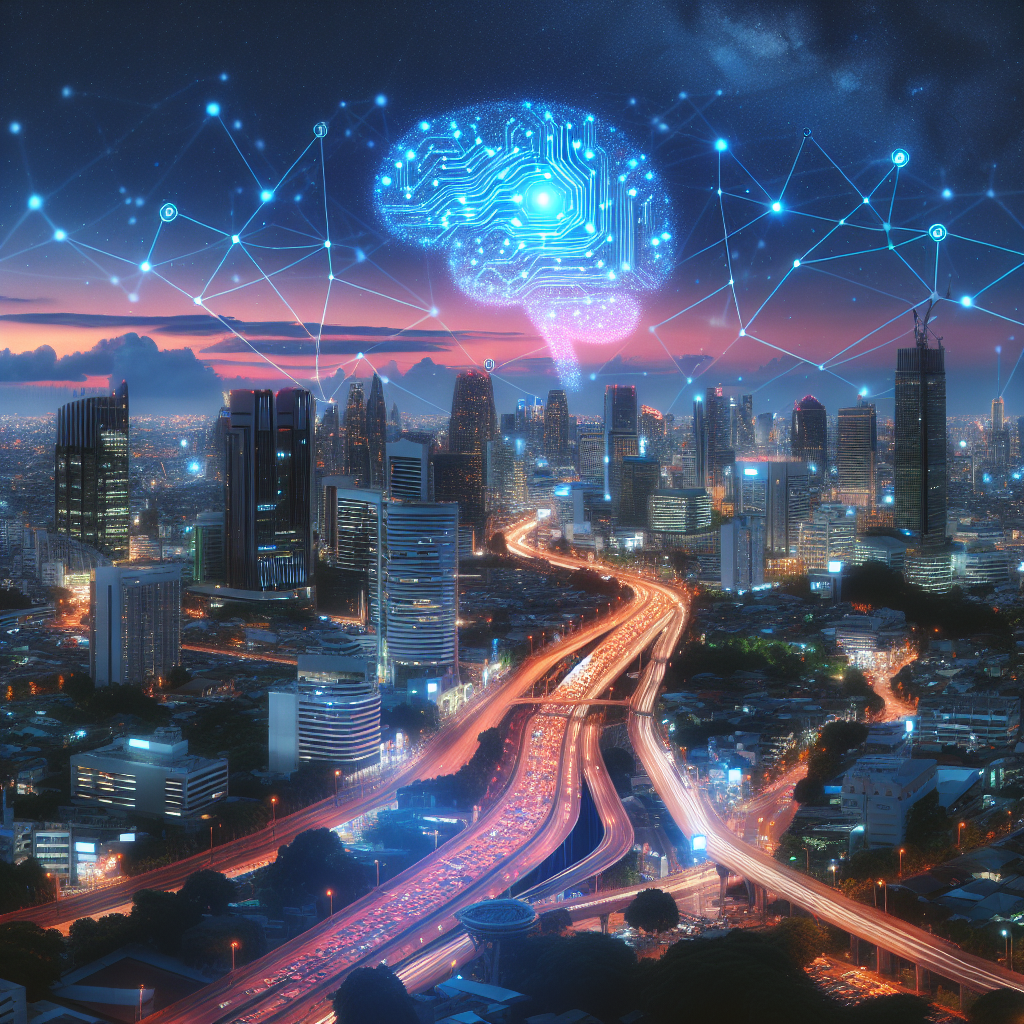Artificial intelligence (AI) has the potential to transform smart city planning by improving efficiency, reducing costs, and increasing sustainability. However, implementing AI in smart city planning comes with its own set of challenges. In this article, we will explore some of the key challenges and potential solutions for successfully integrating AI into smart city planning.
One of the main challenges of implementing AI in smart city planning is the lack of data. AI systems rely on large amounts of data to make informed decisions and recommendations. In many cases, cities may not have access to the necessary data or may struggle to collect and organize it in a meaningful way. This can hinder the effectiveness of AI systems and limit their ability to provide valuable insights for city planning.
To address this challenge, cities can work to improve their data collection and management processes. This may involve investing in new technologies and infrastructure to gather data from various sources, such as sensors, cameras, and other IoT devices. Cities can also work with private sector partners to access additional data sources and ensure that the data is accurate, reliable, and up to date.
Another challenge of implementing AI in smart city planning is the complexity of the systems themselves. AI systems can be highly technical and require specialized expertise to develop, implement, and maintain. Cities may struggle to find the necessary talent and resources to effectively deploy AI systems, leading to delays and cost overruns.
To overcome this challenge, cities can invest in training programs and partnerships with universities and research institutions to build the necessary expertise in AI. Cities can also work with technology vendors and consulting firms to develop customized AI solutions that meet their specific needs and requirements. By building a strong foundation of technical expertise and support, cities can ensure the successful implementation of AI in smart city planning.
Another challenge of implementing AI in smart city planning is the potential for bias and discrimination in AI systems. AI systems can reflect and perpetuate biases present in the data used to train them, leading to unfair outcomes and decisions. This can have serious implications for marginalized communities and exacerbate existing inequalities in cities.
To address this challenge, cities can implement safeguards and oversight mechanisms to ensure that AI systems are fair, transparent, and accountable. This may involve conducting regular audits of AI systems to identify and address bias, as well as involving diverse stakeholders in the development and deployment of AI systems. Cities can also work to educate residents about the potential risks and benefits of AI in smart city planning, and solicit feedback and input from the community to ensure that AI systems are used in a responsible and ethical manner.
One final challenge of implementing AI in smart city planning is the potential for cybersecurity risks. AI systems can be vulnerable to cyberattacks and data breaches, which can compromise the integrity and security of city data and infrastructure. Cities must take proactive measures to protect their AI systems from potential threats and ensure that sensitive data is safeguarded against unauthorized access.
To mitigate this challenge, cities can implement robust cybersecurity protocols and encryption standards to protect AI systems and data from cyber threats. Cities can also work with cybersecurity experts and technology vendors to assess and address potential vulnerabilities in AI systems, and develop contingency plans in the event of a security breach. By prioritizing cybersecurity in the development and deployment of AI systems, cities can minimize the risks and ensure the integrity and reliability of their smart city planning initiatives.
In conclusion, implementing AI in smart city planning presents a number of challenges, from data collection and expertise to bias and cybersecurity risks. However, with careful planning, investment, and collaboration, cities can overcome these challenges and harness the potential of AI to improve efficiency, sustainability, and quality of life for residents. By addressing these challenges head-on and working towards responsible and ethical use of AI in smart city planning, cities can create more vibrant, resilient, and inclusive urban environments for all.
FAQs
Q: What are some examples of AI applications in smart city planning?
A: Some examples of AI applications in smart city planning include traffic management systems, predictive maintenance for infrastructure, energy optimization in buildings, and waste management optimization.
Q: How can cities overcome the challenge of data collection for AI systems?
A: Cities can improve their data collection processes by investing in new technologies and infrastructure, working with private sector partners, and implementing data management best practices.
Q: What steps can cities take to address bias and discrimination in AI systems?
A: Cities can implement safeguards and oversight mechanisms, conduct regular audits of AI systems, involve diverse stakeholders in the development process, and educate residents about the risks and benefits of AI.
Q: How can cities protect their AI systems from cybersecurity risks?
A: Cities can implement robust cybersecurity protocols and encryption standards, work with cybersecurity experts and technology vendors, and develop contingency plans for potential security breaches.

